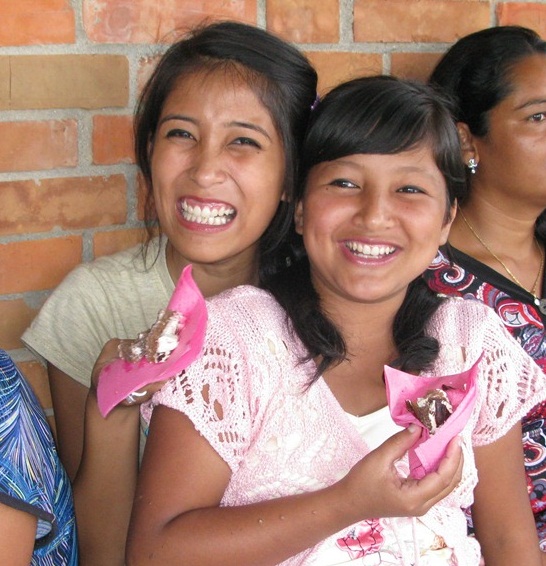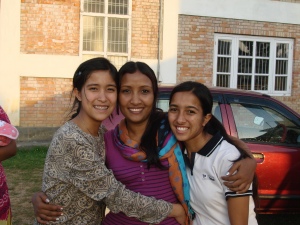In the mountains of Katmandu, Nepal up a winding cobblestone street surrounded by ancient Nepalese buildings, garlic cloves hang from windows and hay bales dry in the sun. Women dressed in traditional garb spin yarn on the side of the road and children dressed in matching uniforms scuttle by on their way to school. Smoke from the chimney stacks can be seen in the distance as brick makers are hard at work. There on that winding road in the hill country sits a quaint tea shop. To the average passerby, it might appear to be a typical tea shop consisting of nothing more than a small front kitchen and several tables. Yet to Shamita and Kala, this tea shop signifies strength, success and freedom from Nepals’ brutal sex trafficking industry.

The owners, Kala and Shamita, are two female business leaders in Nepal—a rarity in a culture that often devalues women as property of men. Shamita and Kala once thought their lives were no more valuable than providing their bodies to man after man in the brothels of Mumbai. Even after they escaped the horrors of sex slavery through the support of Shared Hope’s partner, they were shunned by their village upon returning to Nepal. The life they never chose now banned them from those who were supposed to love and respect them most- their own father forced them to leave.
This story is all too common for women in Nepal. There is big money for traffickers who trick the women to leave through the false promise of love or a better job. Sometimes the trafficker exploits a family’s poverty- convincing parents sell their own daughters. Even if these women find a way to pay off their “debt,” the payment that the brothel owner paid the trafficker, or escape from the violent, forced situation, they often have no home to return to in Nepal. This lack of options forces many back into the violent arms of the brothel.

But Shamita and Kala did have another option. After leaving their village their next stop was Asha Nepal. “Asha” translates to “hope” in Nepalese, and this is exactly what our partner provided to the sisters.
Shared Hope staff originally met Kala and Shamita in Mumbai. They were living in an apartment that our President and Founder, Linda Smith, had secured while our partner was still building a permanent home for women and children in Nepal. Previously, their home had been one of Mumbai’s infamous brothels in the red light district. They were one of many women who desired to return to the home they knew before their exploitation, Nepal.

To meet this need, Shared Hope partnered with a visionary leader in Nepal and a team in India to develop a Village of Hope in Nepal. This home allows women from Nepal who were trafficked to India to return to their home country, even if they are banned from every returning to their family again. Together, Shared Hope Founder Linda Smith and our Nepalese partners built a home and a nurturing family for these women.
Now, moving beyond restoration, Shamita and Kala are breaking barriers in the community, showing they are more than survivors; they are thrivers. Their success is helping to shift cultural norms in Nepal. Their lives are testament that life beyond the brothel is possible. Success is possible. Freedom is possible. Anything can be possible.
 Hanna never knew her birth date, so when her loving new family realized it had been a year since she was set free, they blessed her by celebrating the one year anniversary of her rebirth into freedom, complete with a surprise party.
Hanna never knew her birth date, so when her loving new family realized it had been a year since she was set free, they blessed her by celebrating the one year anniversary of her rebirth into freedom, complete with a surprise party.






